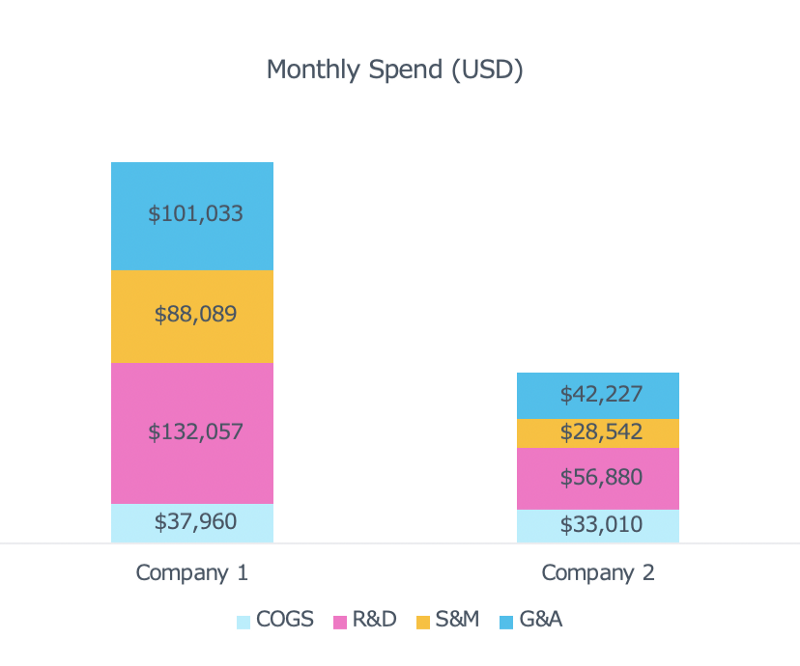The importance of Frugality
And 10 areas of spend you should optimise on till you are 100 people

And 10 areas of spend you should optimise on till you are 100 people
My wife often complains about my frugality. If you’re Indian, then you’ll find humour in the fact that I’m a Punjabi and she comes from a Bania family. It’s true though, I am frugal. Maybe it’s because I have seen my parents work hard for every single penny they earned. Maybe it’s because I built and ran a bootstrapped profitable company, not dependent on third party capital. Or maybe I’m just a cheapskate.
I have noticed that we tend to have two mutually exclusive sets of founders in our portfolio. Ones who are frugal through their company journey (most of them) and ones who are not (few of them). Choices made by these founders and my learnings from them, are what I want to share today.
Why be Frugal?
Before we begin I urge you to ask yourself a question: “Are you great at fundraising?” Look back on your previous interactions with investors. Were they clambering on top of each other to give you money? For some founders this is the case, and if you are one of them, frugality might not necessarily be for you. But for most of you, this is not the case, and then the next few sections will likely be important in your journey.
As many of you would know, Jeff Bezos laid down Frugality as Amazon’s 9th Principle. It’s an important principle, helping Amazon sustain a substantial competitive advantage over other players.
“Frugality: We try not to spend money on things that don’t matter to customers. Frugality breeds resourcefulness, self-sufficiency, and invention.”
I couldn’t agree more, especially for a tech startup. A lower cost base for a startup helps in:
Increased Runway — meaning more time to iterate/scale. Healint from our first fund turned profitable earlier this year. It has given them the opportunity to choose their investors, as well as raise at their own whim.
Better Economics — meaning price as a competitive advantage or just displaying great unit economics to investors. One of the biggest reasons for Ayopop’s Series A fundraise was the great economics they were able to show compared to competitors.
How to be Frugal?
So where all can you save? After reviewing countless P&Ls in the last 5 years, I feel the single biggest cost sector you should focus on is your G&A expense. This expense doesn’t directly impact the customer experience, and is more often than not, in your own control.
- Rent — if you can’t build a team without offering the nicest office in town to them, then either you are not capable of attracting good talent or you are self selecting a biased set of candidates. Either way you are doomed. Caveat: do be close to your customer
- Founder salaries (any one who has a lot of shares) — I have written off high potential companies from our pipeline just based on the salaries that founders want to give themselves. So far this filter has worked well for me as I can see that most of these companies I passed on managed to raise initial capital but have now plateaued. Maybe I’ll find in the future that this filter is wrong, but so far it seems to work.
- Miscellaneous expense — seems obvious. Culture is not built by the next big outing. It’s built by putting in core values towards customer problems, your product and each other, while driving the team with a shared vision.
- Travel — economy flights and sub-$100 hotels FTW! Hey, I travel on low cost carriers as much as I can and usually take the cheapest airline wherever I go. As long as you know the airline is reliable, you are good. Leave the business class for the corporates you are trying to disrupt.
- Software Tools — this one is a tricky one. You have to see whether this makes sense for you based on your engineering team’s speed and capabilities. But I have seen more companies in my portfolio build simple custom CRM solutions on their own. Till you are a 100 people and managing monthly budgets of less than $1M, I don’t see why you need fancy tools that cost anything more than $100 a year. Side hack: there are many Indian startups disrupting their extravagant SaaS peers from the valley. Freshworks alone has 20 such solutions, some thing you can try to use internally.
- Free Lunches — you are not a catering company, you are a startup. I haven’t seen this added benefit increase productivity in any way. Having a cafeteria within the office is an easy excuse for people to lounge about. I used to do the same when I was at Microsoft.
- Transport — if you are subsidising employee transport, do it for public transport, not Ubers. Think about the environment and think about the company. Your employees can no longer blame traffic woes for being late. Win win win.
- Legal — I have written posts in the past about the importance of having a good lawyer on board. But I always recommend my founders to not choose the most expensive lawyer in town. Most of your documents get rewritten in future rounds regardless of who you use in the initial rounds.
- FX — Most companies in Asia end up suffering from FX loss as they raise money in USD and deploy in local currency. There are many tech firms solving this problem for startups: Transferwise, Wallex, Instarem, Revolut.
- Office furniture —Unless you are sure you’ll stay in this office for next 5 years, I don’t see why you should spend on CAPEX. Try to leverage on the co-working trend to move away from taking this spend on your own balance sheet. In India, firms such as Rentomojo and Furlenco also provide furniture on rent.
On an ending note, I wanted to leave you with a comparison of two of my portfolio companies in terms of cost allocation across categories.
Both of them are at a similar stage of their journey, valued roughly the same, although they are operating in different geographies. Company 1 took 24 months and a bridge round to raise their Series A. We were running out of money and scrambled to close the round. Company 2 raised their Series A 6 months after closing the Seed round. Investors were chasing this company.
Which company do you want to be?
